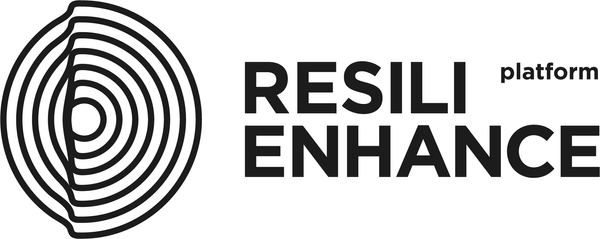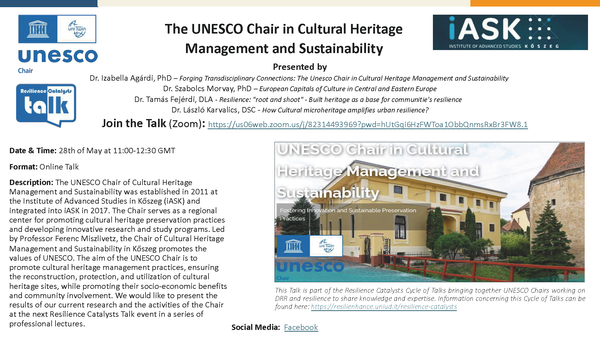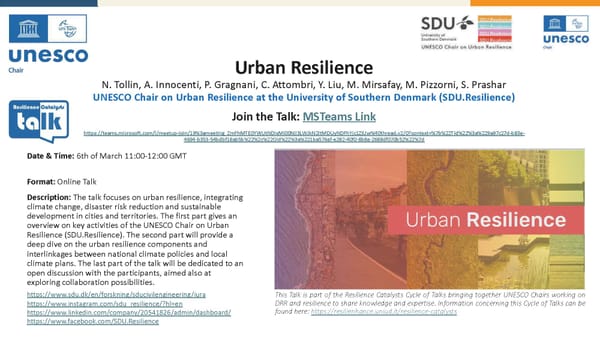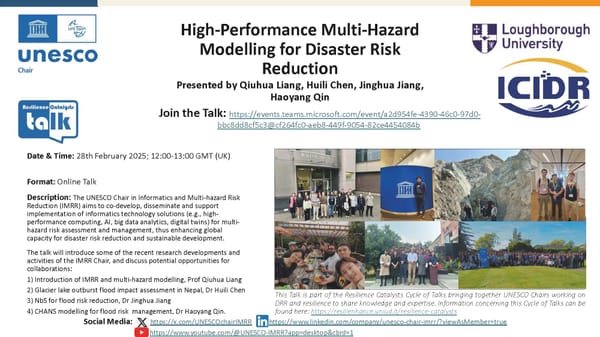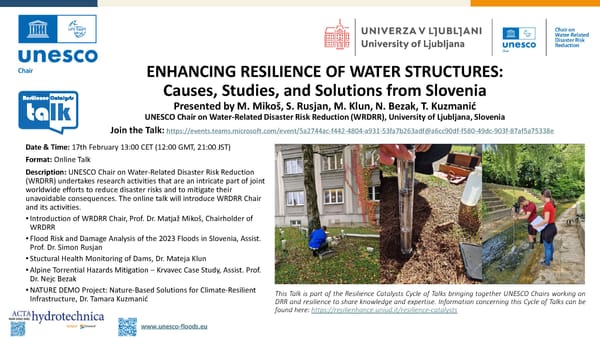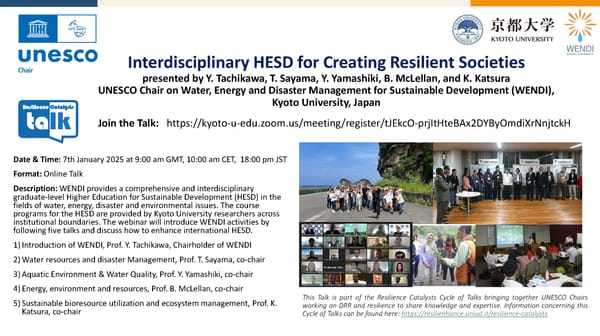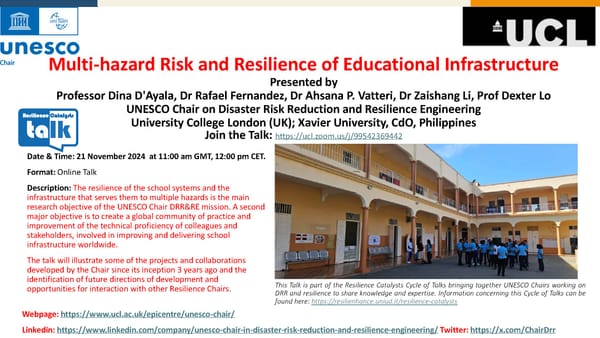Resilienhance
12 Contents
ResiliEnhance Platform Gathers in Udine
The ResiliEnhance Platform 2025 Meeting will be held in Udine, Italy, on October 27th and 28th, 2025. The event is organized by the University of Udine - SPRINT-Lab, with the support of the Central European Initiative (CEI), the Friuli Venezia Giulia Region, and the International Center for Mechanical Sciences (CISM)
Resilience Catalysts TALK 6 - The UNESCO Chair in Cultural Heritage Management and Sustainability, Institute of Advanced Studies in Kőszeg (Hungary)
The UNESCO Chair of Cultural Heritage Management and Sustainability was established in 2011 at the Institute of Advanced Studies in Kőszeg (iASK) and integrated into iASK in 2017. The Chair serves as a regional center for promoting cultural heritage preservation practices and developing innovative research and study programs. Its aim
Resilience Catalysts TALK 5 - Urban Resilience
The talk focuses on urban resilience, integrating climate change, disaster risk reduction and sustainable development in cities and territories. The first part gives an overview on key activities of the UNESCO Chair on Urban Resilience (SDU.Resilience). The second part provides a deep dive on the urban resilience components and
Resilience Catalysts TALK 4 - High-Performance Multi-Hazard Modelling for Disaster Risk Reduction
The UNESCO Chair in Informatics and Multi-hazard Risk Reduction (IMRR) aims to co-develop, disseminate and support implementation of informatics technology solutions (e.g., high-performance computing, AI, big data analytics, digital twins) for multi-hazard risk assessment and management, thus enhancing global capacity for disaster risk reduction and sustainable development. The talk
Resilience Catalysts TALK 3 - Enhancing Resilience of Water Structures: Causes, Studies, and Solutions from Slovenia
The UNESCO Chair on Water-Related Disaster Risk Reduction (WRDRR) at the University of Ljubljana (Slovenia) undertakes research activities that are an intricate part of joint worldwide efforts to reduce disaster risks and to mitigate their unavoidable consequences. This talk introduces the WRDRR Chair and its activities, covering the analysis of
Resilience Catalysts TALK 2 - Interdisciplinary HESD for Creating Resilient Societies
The UNESCO Chair on Water, Energy and Disaster Management for Sustainable Development (WENDI) at Kyoto University (Japan) provides a comprehensive and interdisciplinary graduate-level Higher Education for Sustainable Development (HESD) in the fields of water, energy, disaster and environmental issues. The course programs for the HESD are provided by Kyoto University
Resilience Catalysts TALK 1 - Multi-Hazard Risk and Resilience of Educational Infrastructure
The resilience of school systems and infrastructure that serves them to multiple hazards is the main research objective of the UNESCO Chair on Disaster Risk Reduction and Resilience Engineering (University College London, United Kingdom) mission. A second major objective is to create a global community of practice and improvement of

